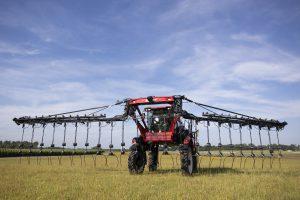Rao Mylavarapu, professor of sustainable nutrient systems
University of Florida, Institute of Food and Agricultural Sciences (UF/IFAS)
Department of Soil, Water, and Ecosystem Sciences
In a globalized food system, a problem at one point causes a ripple effect across the world.
Such a breakdown is evident with the Russian invasion of Ukraine. The war has caused a disruption that will be acutely felt in agriculture – both in the United States and around the world. One key ingredient to agricultural production – fertilizer – is a good example of that kind of disruption. The industry will feel the cascading impacts for some time to come.
Mary Hartney, president of the Florida Fertilizer & Agrichemical Association, is keenly aware of the market volatility and supply chain challenges.
“Today, more than ever, growers are encouraged to work with their fertilizer dealers and/or crop consultants to optimize their fertilizer strategies,” she told me. “The 4Rs – the right source of nutrients, at the right rate, in the right place, and at the right time – are the foundation for smart fertilizer decisions.”

The U.S. is the world’s third-largest fertilizer importer and is responsible for nearly 10.3% of global consumption. As per the summaries from Mineral Commodities, the U.S. annually imports about 12, 9, and 93 percent of its nitrogen, phosphate, and potash fertilizers, respectively. Nearly 90% of the U.S.’s ammonia is produced domestically and its phosphate is imported from Peru and Morocco. The U.S. still depends on Russia and Belarus for about 12% of its potash (equal amounts from both). The two countries are under western sanctions, so those exports are meager.
Ammonia production directly depends on natural gas. As more ammonia is produced in the U.S. and its trading partners, the supply and price of natural gas are impacted. Consequently, so are those of nitrogen fertilizers.
One of the largest Norwegian fertilizer companies, Yara, has its production based in Ukraine. Russia has blocked access to the Black Sea, further choking the shipping routes and the supply lines. Similarly, several major agriculture companies based in the U.S. have operations in Ukraine. Businesses including ADM, Bunge, and Cargill have closed their offices there. Ukraine has 102.5 million agricultural acres. Russia and Ukraine share about 14% of the wheat production and 29% of the wheat exports in the world (CNBC), along with nearly 60% of the world’s sunflower oil supply. Ukraine also supplies significant corn (15%), barley (15%) and rye to Europe.
To help offset some of these effects, the U.S. Department of Agriculture announced in March, a sum of $250 million in grants to support U.S. fertilizer production. Reuters reports that CF Industries Holdings is increasing shipments domestically from its nitrogen complex in Louisiana, the world’s largest, to help offset a decline in exports from Russia. Reuters also reported that Canada’s Nutrien Ltd., the world’s biggest fertilizer producer, said the war in Ukraine could result in prolonged disruptions to the global supply of potash, nitrogen, and other crop nutrients. Therefore, it will plan to boost potash production and expects to sell up to 14.3 million tonnes of potash this year, the most it has ever produced.
And Mary Hartney with FFAA said her members have a vested interest in helping growers succeed:
“As one FFAA board member said, ‘We’re not selling just for today. We want these customers for decades to come.’”
The war and resulting uncertainty demonstrate the intertwined nature of food production and how one disruption can have far-reaching impacts on food supply and distribution in a global economy. That is likely to affect the prices in the U.S. and food security across the world for some time to come.
See the companion piece to this article: Agricultural Impacts of Russia’s Invasion of Ukraine
Dr. Rao Mylavarapu also serves as director of the IFAS Analytical Service Laboratories (ANSERV Labs).
 7
7
